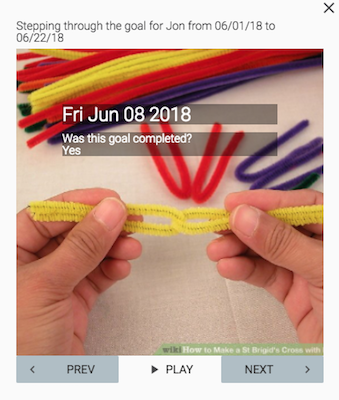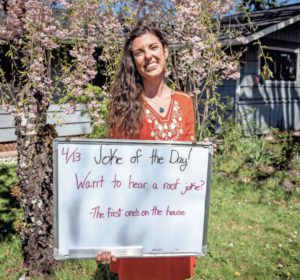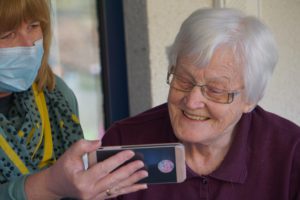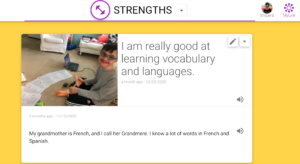Giving Students Meaningful Data to Measure their Progress
Measuring student progress is essential to understanding areas of student need. For individuals with intellectual barriers or unique learning styles, activities like standardized testing or even quiz scores and letter grades over time can be demeaning and seem pointless. Perhaps more valuable for students’ overall educational experience is being able to understand for themselves how they are doing on a day-to-day or week-to-week basis through meaningful data visualization.
When pressed to succeed in academic areas, students with intellectual and developmental disabilities (IDD), including autism spectrum disorders, often have a difficult time interpreting many traditional methods of measuring progress. These same students are more likely than their peers without disabilities to experience school failure, lack self-efficacy, and have poorer long-term overall quality of life outcomes.
And while many people involved in education recognize the importance of good data, there is limited student involvement in how data is managed and used by them and their support team to develop meaningful goals. This may be due partly to the difficulty in measuring progress for students with more profound barriers to learning. It may be also a result of a deficit-based model, where progress is often based on numerical representations of an academic, social, or behavioral activity.
When data is described numerically rather than anecdotally, individuals with cognitive disabilities often have a difficult time understanding numeracy or abstract thinking. They are more likely to relate to literal thinking that is connected to their own experiences.

No, we are not talking about IEP’s or once-yearly written goals. We are talking about those meaningful experiences that give a person with a profound disability genuine insight into their performance and achievements–moments when a student feels pride in the idea that what they had accomplished mattered and when that experience is meaningful. In ePortfolio development, these data points are often referred to as artifacts of student learning. For students with IDD, we think of these more as visual anchors that support cognitively accessible data displays.
With the Cognitopia Platform, we are actively exploring how to develop and use data analysis tools that incorporate explicit facts, anecdotal experiences, pictures, and videos to use as anchors for an individual’s self-analysis.
Students in today’s schools, however, have very limited opportunities to self-reflect on their progress academically or in other domains of personal development over time. The lack of instruction and intrinsic motivation in personal goal management is particularly troubling, considering that once students with individualized goals reach sixteen years of age, they are required by the Individuals with Disabilities Education Act (IDEA) to be involved in their individual goal development.
With Cognitopia, students can use their own pictures as infographics to reflect on goal progress. In this instance, a student might elect to symbolize or represent progress on a personal goal or goal completion with a standalone photo or image or in slideshow format. These visual representations of success come at the end of a goal cycle allowing a student to understand their progress and provide educators and parents with a visual look into the students’ self-identified accomplishments.
Ultimately, Cognitopia makes the assessment of an individual’s progress on goals to be individually meaningful and provides a mechanism or tool for students to put their goal accomplishments and self-reflections into their own words. Sometimes a picture really is worth a thousand words.
Tobias Rickard has been an Autism Consultant for the Eugene 4J School District in Eugene Oregon since 2005. Prior to consulting, Toby was a Special Education teacher and received his Masters in Special Education from the University of Oregon, with an emphasis on positive behavior support. Before teaching, Toby was an Employment Specialist in Boulder, Colorado supporting individuals with autism and other exceptionalities with their vocational pursuits. Toby has previously been active in Oregon Council for Exceptional Children, holding various leadership positions within the state unit. Toby is an active member of his disability community as a long-term board member of the local non-profit Supporting Access to Independent Living and as an advisory board member of KindTree Autism Rocks, both located in Eugene. Toby’s areas of interest are in student advocacy, transition, and accessibility. Particularly, the development of student-centered technologies and universal design for learning.



